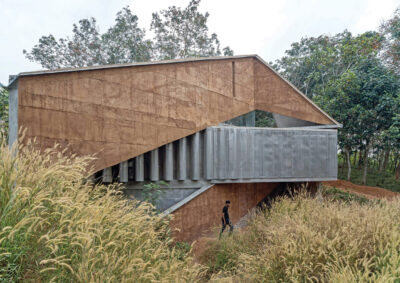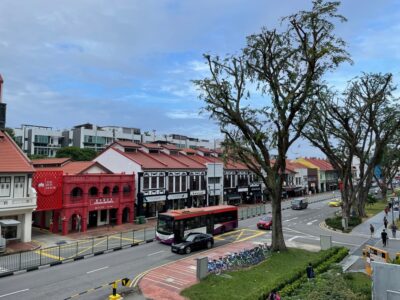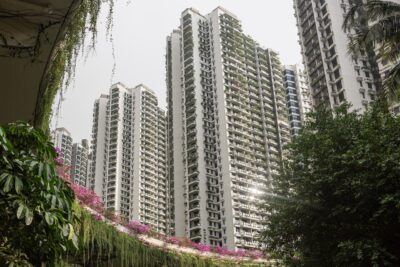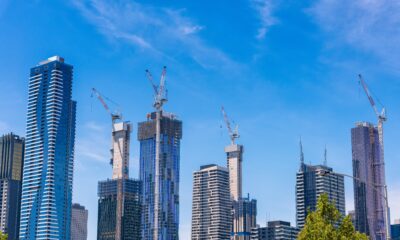Chinese residential market strongly recovers, but fears of overheat emerge
A stunning rebound in China’s residential market has confounded predictions of a difficult year. But the surprise surge has reignited fears of imminent overheat

Violent protests in Hong Kong, the worst pandemic in a century, and an escalating trade war with the United States have barely registered a dent in Shenzhen’s robust housing market.
The city of 12 million people—considered a Covid-19 success story in China for its aggressive contact tracing—saw sales all but cease entirely for two months early this year. But once normal sales activity resumed in mid-March, a wave of pent-up demand ensued with transactions surging 41% in the city during the first half compared to the same period in 2019. Resale home prices also recorded a sharp 14.3% rise, according to official government data.
Residential markets in the country’s main cities have fared particularly well, recording figures unthinkable just a few months ago when many analysts predicted a tough year for Chinese property. Shanghai, the only city with higher average prices than Shenzhen, saw transaction volumes reach a three-year high and prices climb nearly 5% during the first six months of 2020.
“It’s surprising how quickly the market rebounded,” says James MacDonald, head of Savills Research in mainland China. “Shanghai and Shenzhen have performed well over the past six months, but not only these cities,” he adds, citing strong price growth in the northern city of Tangshan and Chengdu in the southwest, among others.
Even Wuhan, ground zero of the Covid-19 outbreak, recorded a near 8% surge in prices over the same period, notes MacDonald. While cities like Fuzhou, Wuxi and Changzhou have fared worse, official data reveals overall prices in China’s housing market climbed at their fastest pace in 10 months in June.
During this period of unprecedented economic damage—China’s economic output contracted 6.8% during the first quarter and rebounded to 3.2% growth from April to June—financial stimulus proved key to China’s real estate recovery miracle.
By June, mortgage rates had fallen below 5.3%, according to loan platform Rong360, their lowest in nearly three years following three rapid-fire rate cuts by the central bank in the wake of the pandemic. “[The] main stimulus is the interest rates,” says Regina Yang, head of research at Knight Frank in Shanghai.
The Chinese government has been fighting a battle against rising prices, which has proven difficult to manage in recent years, let alone win. Of the 10 worldwide cities with the most expensive housing prices, three of the top six are in China
The Chinese government has been fighting a battle against rising prices, which has proven difficult to manage in recent years, let alone win. Of the 10 worldwide cities with the most expensive housing prices, three of the top six—Shanghai, Shenzhen, and Beijing—are in China,
However, by the start of the second half of the year, signs emerged of growing government concern that residential prices had in many cities already become overheated amid the surge of easy money. In mid-July, China’s Banking and Insurance Regulatory Commission complained black market lending was seeping into the stock and property markets. Two weeks later, Han Zheng, seventh in command in China’s Politburo, held a rare real estate meeting in Beijing urging stricter monitoring of the housing market, warning of the inflow of unlicensed loans into the market. Among the attendees were officials from Shenzhen and Shanghai—the cities leading the recent housing rally.
More: China’s residential market once frozen due to COVID-19, shows signs of recovery
“Han is signalling a ramp up of regulatory action in H2 to keep the real estate market (and real estate prices) in check,” says a note by Trivium, a China policy research consultancy based in Beijing.
The Chinese government has been fighting a battle against rising prices, which has proven difficult to manage in recent years, let alone win. Of the 10 worldwide cities with the most expensive housing prices, three of the top six—Shanghai, Shenzhen, and Beijing—are in China, according to CBRE’s annual global living report published in August.
First-placed Hong Kong and Vancouver in seventh point to how far and wide Chinese buyers have travelled to secure their money in property amid a continued lack of safer or more profitable asset options on the mainland. Next year’s survey will almost certainly show the picture further skewed towards China: the data used by CBRE is from 2019, and since then Shenzhen prices have skyrocketed while many cities have stagnated amid Covid-19.
Government efforts to rein in China’s housing market point to the uneven challenges facing this huge country and its hybrid market system during normal times, let alone a pandemic. In Shanghai, prices have surged so far this year but in lesser-known Jinan, just three hours north by high-speed train, the housing market has deflated since the pandemic.
China’s policy efforts remain a mixture of broad central government instruction and interpretation at the local level. To show they are listening, city governments have increasingly made sure to begin announcements on real estate policy by quoting a now infamous warning by President Xi Jinping from October 2017: “Houses are for living, not for speculation.”
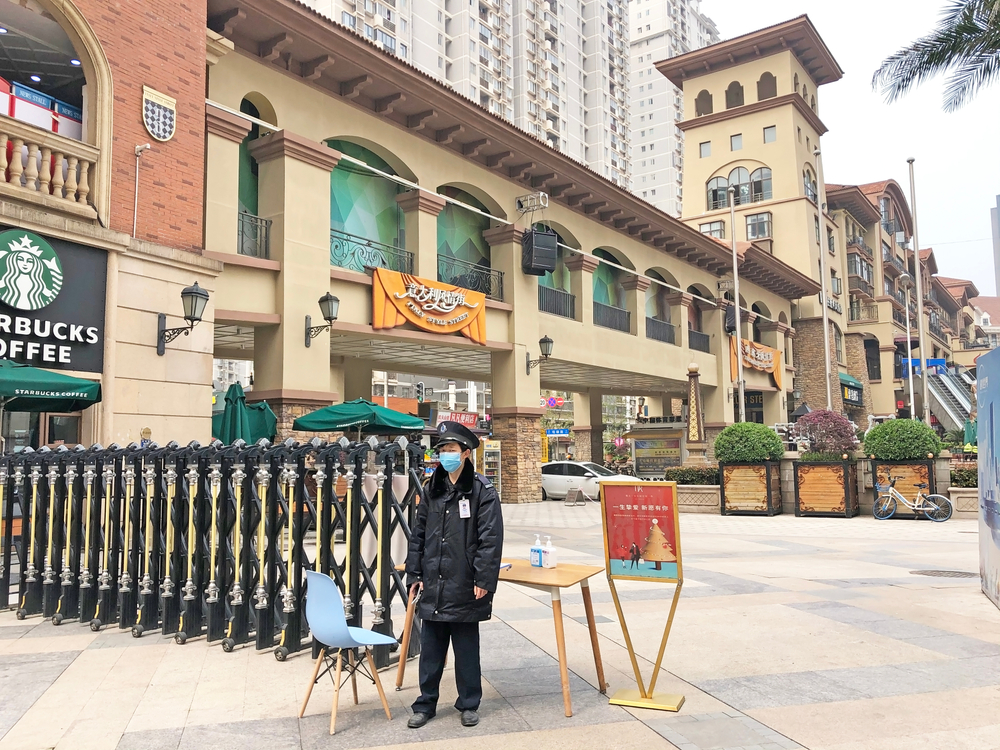
Shenzhen’s municipal government began issuing a raft of additional purchase restrictions in mid-July. Would-be buyers would only be allowed to complete on a property if they could show a residency permit for Shenzhen and proof of income tax or social security for the previous three years. Families would be restricted to owning two homes in the city, and singles just one. With many buyers frozen out of the market overnight, market activity immediately dropped: after reaching 10,000-unit sales in June, a four-year high, transactions roughly halved in Shenzhen in the week following the new restrictions.
Some cities have punished major lenders in a bid to rein in rapidly resurgent market activity, particularly those where prices have risen sharply. In Ningbo, a branch of Bank of China was fined in July after “allowing personal credit funds to flow into the housing market,” and in nearby Hangzhou, Agricultural Bank of China was penalised for doing similar.
Although officials in Beijing and at the local level have continued to warn of market speculation, many analysts agree such activity has remained minimal since the pandemic, as pent-up demand and buyers keen to buy at prices lower than usual are viewed to be the key drivers. “China’s M1 [money supply], tier-one cities property inflation and home loan percentage of new lending [are] showing little signs of widespread property speculation,” according to BOCOM International’s chief analyst Hao Hong.
The central government is now expected to refrain from further rate cuts over the remainder of the year in a bid to slow rising house prices while relying on individual cities to continue aggressive policy restrictions where necessary. Post-pandemic stimulus will therefore be aimed away from real estate, Nomura had stated in a July note: “Historically, stimulus in the property sector played a central role during easing cycles, but this time Beijing seems unlikely to risk another housing bubble in large cities.”
This article originally appeared in Issue No. 162 of PropertyGuru Property Report Magazine
Recommended
Meet the vagabond architect behind India’s housing scene
Vinu Daniel is helping to shake up India’s home building setting
Where Asian real estate stands in a fragmented, warmer world
Asia’s real estate industry faces many and varied challenges as external factors continue to bite
6 sights to see in Singapore’s Marine Parade
Handily located Marine Parade has emerged as a vibrant investment choice in the Lion City
There’s a township dedicated to health and wellness in Malaysia
Property seekers have their health needs catered for at KL Wellness City

